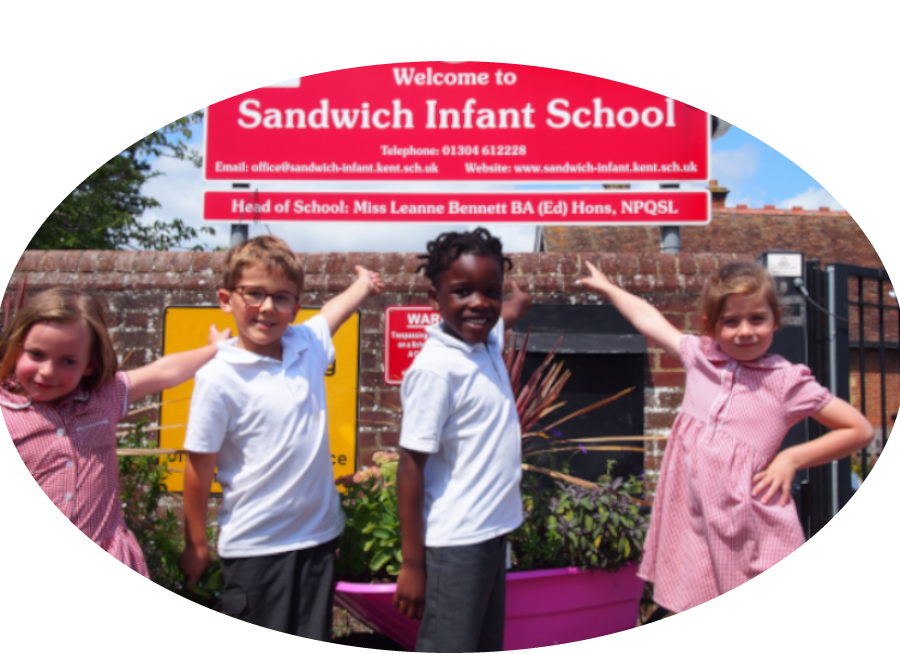.jpg)
.jpg)
.jpg)
At Sandwich Infant School, we believe that ability to write is fundamental to our children succeeding; enabling them to access the next stage of their education and beyond. Our curriculum has been designed to ensure that pupils enjoy writing and have passion and enthusiasm for it. Our aim is to ensure that pupils write clearly, accurately and coherently; write in different styles and for different purposes and audiences; develop a wide vocabulary and a solid understanding of the grammar rules and terminology appropriate for their age group. Our curriculum has also been designed to ensure that pupils are able to express themselves creatively and to communicate effectively with others. Skills are built on progressively.
We follow a Mastery-Learning model, using Pathways to Write. Key skills are taught and repeated so that children are able to master and apply these in further writing. Within each sequence, there are many opportunities for incidental short- burst writing with an extended written outcome built up to by the end of each unit.
The ideas and work are pitched appropriately for all children, with activities for greater depth pupils. For pupils below expected standards, planning is personalised.
Planning follows the sequence of a ‘Gateway’, ‘Pathway’ and ‘Writeway’.
Session 1: Gateway
This is used to hook the pupils into the context of learning and to assess previously taught mastery skills. A short writing task is set at the end of this session to assess the application of Gateway skills. (The focus is on assessment of previously taught skills and is not intended to assess pupils on skills or genres that they have not been taught before.) Where pupils are struggling to apply and to use Gateways keys, these are built into the planning of the unit to ensure more personalised learning.
Sessions 2-11: Pathway
In this section, the Mastery skills are introduced with many opportunities along the way to practise and apply these skills in different writing tasks. The tasks use genres that the pupils will be most familiar with such as character or setting descriptions, dialogue, diary entries, instructions, poetry and sentence work, providing a range of on-going evidence for writing assessment.
Sessions 12-15: Writeway
This final section of the sequence comprises of four sessions. It begins with sectioning and sequencing texts using a model to plan, and to apply all taught knowledge and skills in a final piece of writing. Within the Writeaway, pupils are encouraged to plan, write, check, edit, re-draft and publish as required; with the focus on using and applying the mastery skills they have been taught.
Within all units of writing we stress the importance of spelling, punctuation, grammar and presentation. Writing skills are a key priority within our school where children use writing to model their development and understanding. Teachers demonstrate high quality modelling within each lesson and encourage children to include key vocabulary, structure their work appropriately into coherent sentences and use the grammatical skills and punctuation taught at their year group level.
Children will also have opportunities to apply their knowledge and skills in cross-curricular contexts such as Geography, RE, History and Science.
Handwriting
The correct formation of letters is taught as a discrete handwriting lesson throughout the week. In Reception, children learn how to form pre-cursive letter formations. Once they are secure with the shape and formation of all letters, they will begin to use cursive handwriting in Year One, but only when they are ready. This will help children to learn a joined cursive style by the end of Year Two.
Spelling
Within Key Stage One, we teach spelling as a discrete lesson, focussing upon a particular rule (linked to the National Curriculum expectations) at one time. Children will have the opportunity to practice these throughout the week. We also use Spelling Shed as an interactive approach to learning spellings, which is reinforced through homework practise.
.jpg)
Our Curriculum
Reception Curriculum
Reception termly substantive knowledge progression
Reception termly disciplinary knowledge progression
Year 1 Curriculum
Year 1 termly substantive knowledge progression
Year 1 termly disciplinary knowledge progression
Year 2 Curriculum
Year 2 Termly Substantive Knowledge Progression






